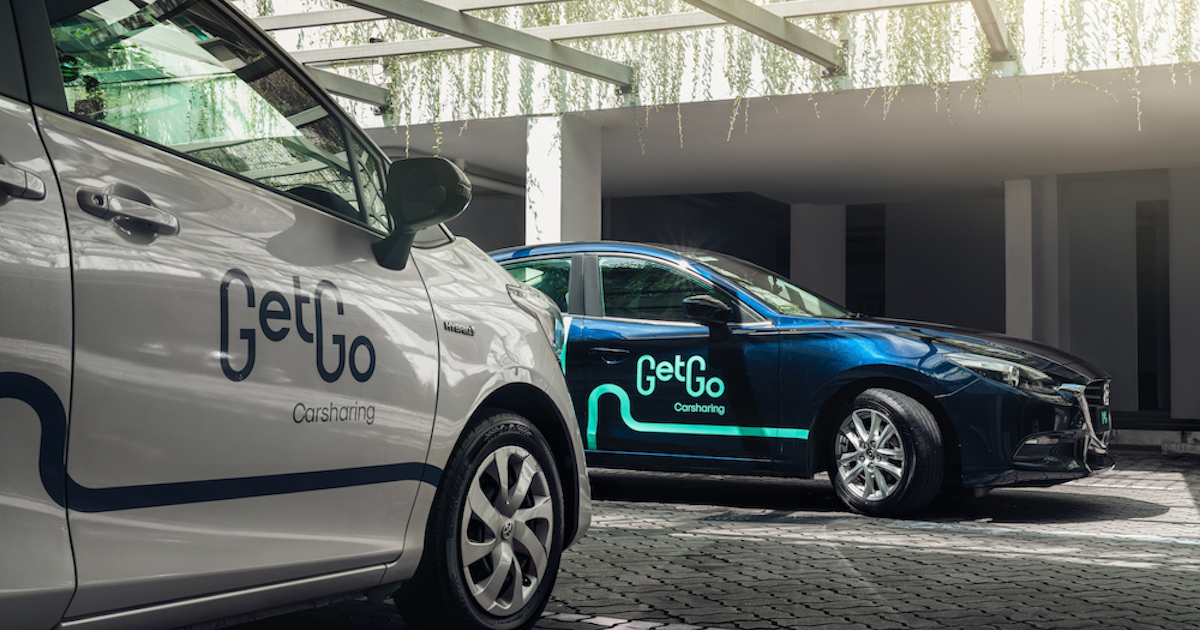The Covid-19 pandemic has led to a surge in demand for a wide assortment of goods and services. For example, e-commerce saw a huge boom as many Singaporeans chose to shop online instead of going to physical stores.
Another industry that saw a huge growth in demand is car-sharing. This refers to private owners leasing their vehicles for others to drive, or when a company has a fleet of cars that can be used for short-term rentals.
According to a report published last year, car-sharing companies experienced a spike in demand the moment movement restrictions were lifted.
During the first phase of the economy reopening in June 2020, Tribecar’s revenue increased by 40 per cent, while Whizzcar saw a 20 per cent increase. On the other hand, BlueSG bounced back from its loss incurred during the circuit breaker with a 50 per cent jump in rentals.
For Drive lah, it saw a 20 per cent rise in month-on-month revenue in April and May during the circuit breaker, and the number of active users went up from about 5,000 in April to 7,000 in June.
Furthermore, Statista states that the user penetration of car-sharing services is 6.8 per cent in 2021 and is expected to hit 8.5 per cent by 2025.
Although the car-sharing boom is clear to see, will this demand sustain in the long term?
Car-Sharing Might Not Be The More Affordable Option

One of the key draws about car-sharing is that it is touted to be the more affordable option when it comes to transport in Singapore.
It takes away the long-term liabilities that come with a depreciating asset such as a car. This is especially prevalent in Singapore, where high costs of car ownership may not be practical over time.
Besides paying for the upfront costs of a car and its Certificate of Entitlement (COE), car owners might expect to pay an average of S$1,591 a year on car insurance, S$621 for servicing/maintenance costs, S$742 in road tax, and S$2,434 in petrol costs each year.
A recent finding by Car Club shows that most cars are under-utilised and sit idly in car parks 80 per cent of the time. Drive lah’s research further affirmed that Singapore sees 11,520,548 of unused car hours per day.
Unless you drive regularly, it is definitely a more economical option for Singaporeans to utilise car-sharing services.
However, we have to take into consideration public transportation as well. Singapore has a very well-connected public transport system, which is more affordable than renting a car from car-sharing platforms.
Furthermore, the country also has a slew of ride-hailing options, from Grab to Gojek, and even smaller players like TADA and Ryde. Here’s how the various car-sharing options in Singapore match up to public transport:

According to the table above, car-sharing is the most cost-effective option, especially with firms like Shariot offering extremely competitive rates from S$1 per hour.
One gripe however, is that many car-sharing platforms require users to pay a monthly membership fee, registration fee, or bear the petrol cost.
Convenience As A Key Draw

Singapore is an extremely fast-paced city, and convenience is something that is highly valued by most Singaporeans.
Even though car-sharing might be affordable, it is not the most convenient option available. In fact, it is likely to take longer than booking a cab or a ride-hailing service.
For example, even though Tribecar has the most diverse fleet of vehicles for rental such as motorcycles, vans and lorries, users have to return the car to the exact parking lot where they collected it from. As such, if the user did not collect the car from a carpark close to their homes, they would have to go out of their way to return it when the rental ends.
Electric car-sharing firm BlueSG adopts a more convenient “point A to B” model, in which users do not have to return the car at the same location they picked it up from. However, they will still have to return the BlueSG car to a designated parking lot.
Furthermore, even though the company currently has a fleet of 667 shared electric Bluecar vehicles and 1,487 charging stations, it is still difficult to find a car, especially at areas where demand is high.
For Drive lah, it is the first peer-to-peer car-sharing platform in Singapore that allows private car owners to rent out their vehicles. To collect the car, you are required to meet your host at a designated pick-up point and after the time is up, you would need to drive the car back to your host.
Car-Sharing Works As A Short-Term Solution
It seems unlikely that Singaporeans will use car-sharing as a frequent mode of transportation like trains, buses and even ride-hailing services.
According to transport economist Walter Theseira of the Singapore University of Social Sciences, car-sharing will only work well in countries where “car capital costs are low, and driver costs are high.”
However, in the case of Singapore, public transport and even ride-hailing services are relatively affordable, which makes car-sharing a less attractive option.
The demand for car-sharing is likely to fall when Singapore’s borders gradually open and Singaporeans are able to venture abroad again.
In the meantime, although Singaporeans might occasionally use car-sharing services for family outings or special long-distance trips, it is unlikely to become a daily mode of transport.
Featured Image Credit: GetGo








